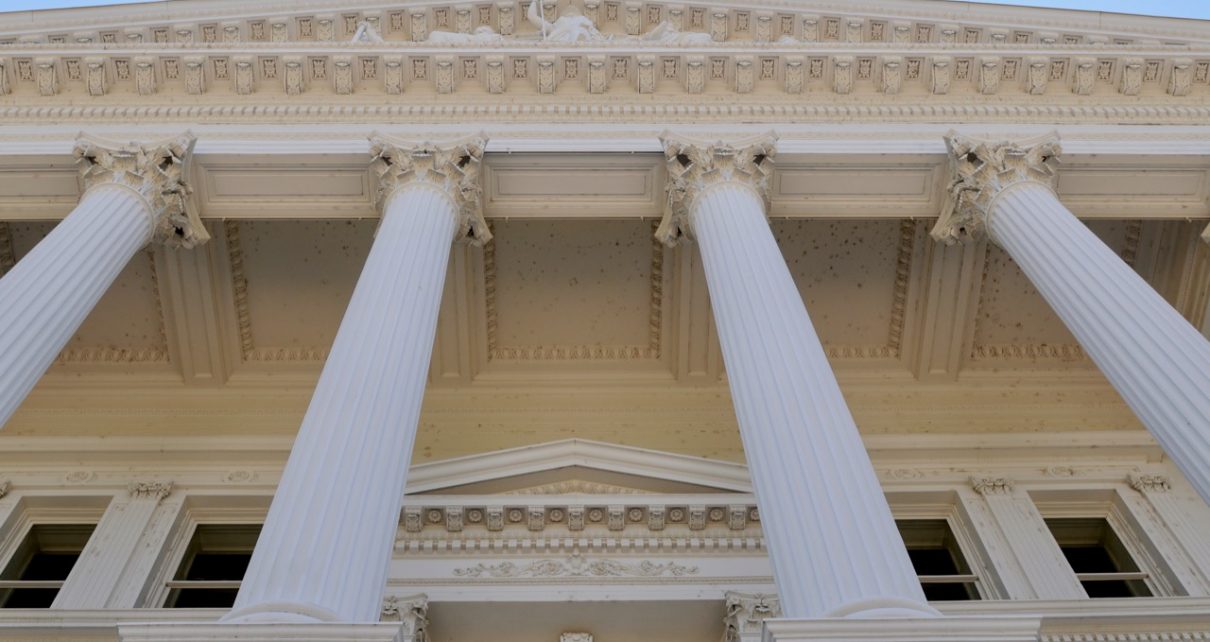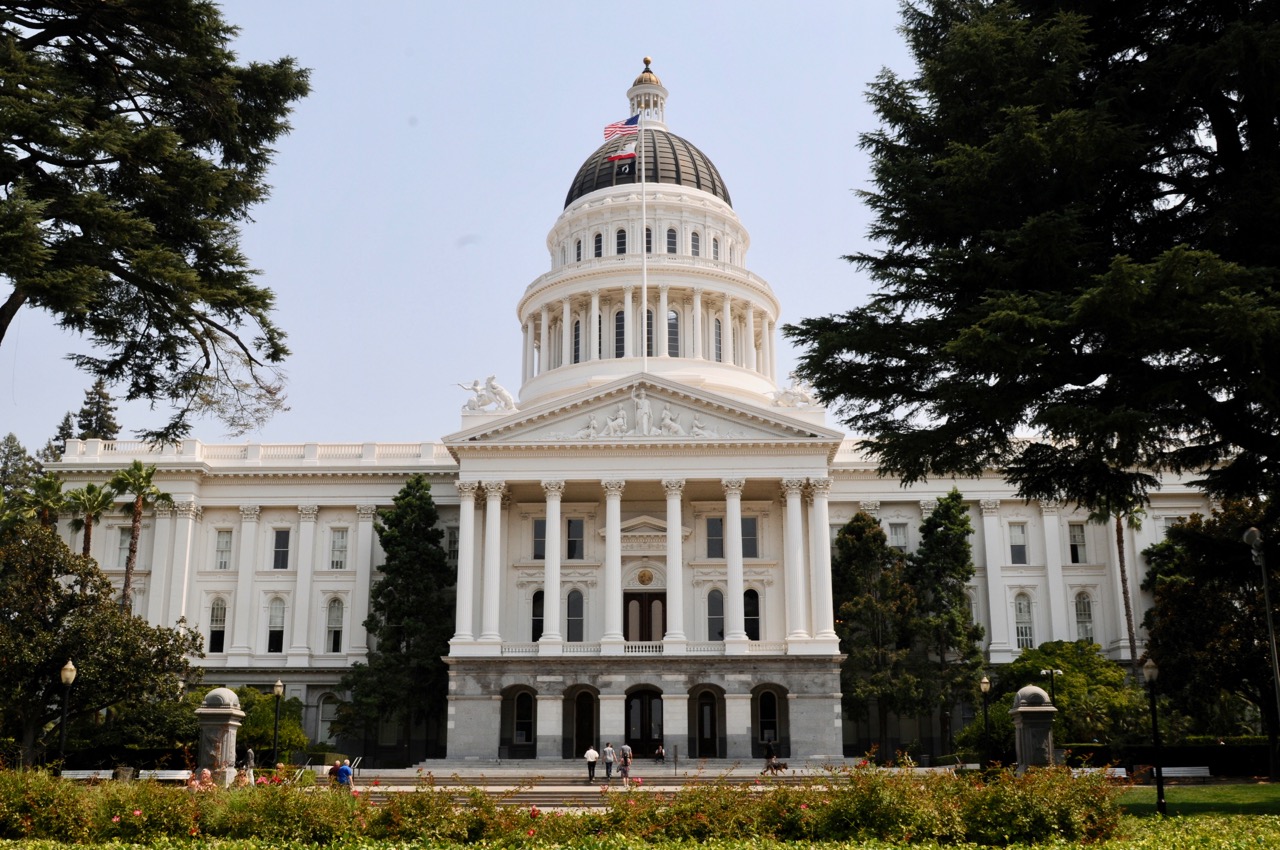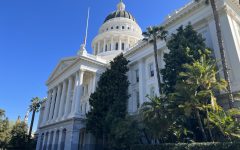
California State Capitol. (Photo: Kevin Sanders for California Globe)
How the Legislature Complies with Proposition 54’s 72-hour in Print Requirement
There are a number of instances each year when amended bills are posted on the Internet within minutes of being amended
By Chris Micheli, October 1, 2023 7:33 am
Proposition 54, which was enacted by the voters at the November 2016 general election, adopted constitutional and statutory changes dealing with bill amendments and recordings of legislative proceedings. How does the California Legislature comply with Prop. 54’s 72-hour in print requirement?
Official Ballot Materials
Prop. 54, whose title was the “California Legislature Transparency Act,” included numerous findings and declarations as part of the ballot measure. For example, those findings included that “It is essential to the maintenance of a democratic society that public business be performed in an open and public manner, and highly desirable that citizens be given the opportunity to fully review every bill and express their views regarding the bill’s merits to their elected representatives, before it is passed.”
According to the Attorney General’s Ballot Summary, Prop. 54:
“Prohibits Legislature from passing any bill unless published on Internet for 72 hours before vote. Requires Legislature to record its proceedings and post on Internet. Authorizes use of recordings. Fiscal Impact: One-time costs of $1 million to $2 million and ongoing costs of about $1 million annually to record legislative meetings and make videos of those meetings available on the Internet.”
According to the official ballot summary, a YES vote on this measure meant: “Any bill (including changes to the bill) would have to be made available to legislators and posted on the Internet for at least 72 hours before the Legislature could pass it. The Legislature would have to ensure that its public meetings are recorded and make videos of those meetings available on the Internet. A NO vote on this measure meant: Rules and duties of the Legislature would not change.”
According to the official ballot arguments, “PRO: Prop. 54 stops special-interest, surprise legislation from passing either legislative house without 72 hours for review. Prop. 54 posts all the Legislature’s public meetings online, so voters can review legislators’ public actions. A bipartisan coalition of good–government, taxpayer, minority, business, and environmental groups backs Prop. 54. Requires no new tax money.
Arguments of Proponents
The proponents of Prop. 54 were specifically concerned with “gut-and-amend” bills that contain “last-minute amendments to bills [that] are frequently used to push through political favors without comment or with little advance notice. Moreover, complex bills are often passed before members of the Legislature have any realistic opportunity to review or debate them, resulting in ill-considered legislation.”
A wide variety of groups actively supported the adoption of Prop. 54, including the California Chamber of Commerce, which cited as its support: “Requiring the Legislature to post each bill online, in its final form, for at least 72 hours before voting on it would give legislators time to review the legislation, hear from their constituents, and be held accountable for the laws they pass.”
Findings and Declarations and Statement of Purpose
Prop. 54 contained the following Findings and Declarations, among others:
“(a) It is essential to the maintenance of a democratic society that public business be performed in an open and public manner, and highly desirable that citizens be given the opportunity to fully review every bill and express their views regarding the bill’s merits to their elected representatives, before it is passed.
“(b) However, last-minute amendments to bills are frequently used to push through political favors without comment or with little advance notice.
Prop. 54 contained the following Statement of Purpose, among others:
“(c) Moreover, complex bills are often passed before Members of the Legislature have any realistic opportunity to review or debate them, resulting in ill-considered legislation… To give us, the people, and our representatives the necessary time to carefully evaluate the strengths and weaknesses of the final version of a bill before a vote by imposing a 72-hour public notice period between the time that the final version is made available to the Legislature and the public, and the time that a vote is taken, except in cases of a true emergency declared by the Governor.”
Language of Prop. 54
Prop. 54 adopted two amendments to the California Constitution, followed by two amendments to the California Government Code (each set dealt with bill amendments and recordings). These changes included the following:
Article IV, Section 8 of the California Constitution was amended to provide (additions are in italics):
(a) At regular sessions no bill other than the budget bill may be heard or acted on by committee or either house until the 31st day after the bill is introduced unless the house dispenses with this requirement by rollcall vote entered in the journal, three fourths of the membership concurring.
(b) (1) The Legislature may make no law except by statute and may enact no statute except by bill. No bill may be passed unless it is read by title on 3 days in each house except that the house may dispense with this requirement by rollcall vote entered in the journal, two thirds of the membership concurring.
(2) No bill may be passed or ultimately become a statute unless the bill with any amendments has been printed, distributed to the members, and published on the Internet, in its final form, for at least 72 hours before the vote, …
(3) No bill may be passed unless, by rollcall vote entered in the journal, a majority of the membership of each house concurs.
Explanation of Prop. 54 Provisions
Pursuant to the above text, the ballot measure required an amended bill to be published on the Internet. Notably, pre-existing law already required the amended bill to be printed and distributed to legislators, but the term “printed” had been interpreted to mean the bill could be in mock-up form, photocopied, and placed on the desks of the Members of the Assembly and Senate for their review. In other words – it could be placed on a desk even if members were not necessarily present at their desk that day.
Though these requirements were not changed, it is no longer the practice of either house to print bills (even in mock-up form) and distribute them to the Members of the Legislature. Instead, they are made available to Members (i.e., legislators) on their laptop computers which are on their official desks on the Senate and Assembly Floors.
Prop. 54 did add the requirement that the amended bill must be published on the Internet, which was implemented and usually occurs the evening of the same day that the bill was amended in either house. However, as the Legislature deals with bills needing to be acted upon shortly after the 72 hours expire, there are a number of instances each year when amended bills are posted on the Internet within minutes of being amended.
As a result, amended bills are published on the Internet and distributed not only to Members of the Legislature, but also the general public.
- Corporations Commissioner Powers - February 27, 2026
- Death Deeds in California - February 27, 2026
- Sources of Law - February 26, 2026




